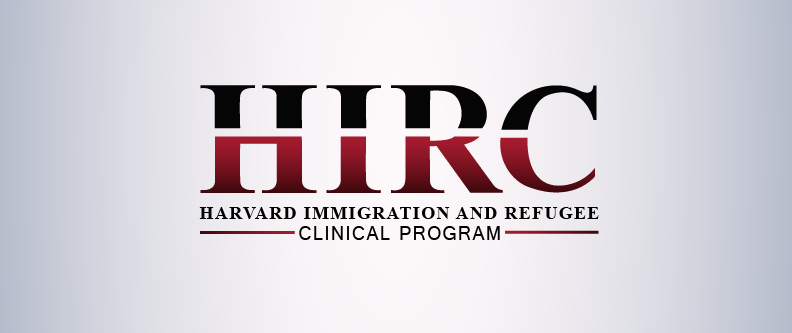
PRESS RELEASE
HIRC Requests Hearing on Canada’s Treatment of Refugees from Inter-American Commission on Human Rights
On October 4, 2017, the Harvard Immigration and Refugee Clinical Program (HIRC) filed a request for a hearing with the Inter-American Commission on Human Rights (IACHR) to discuss the human rights situation of refugee claimants under the Safe Third Country Agreement (STCA) between Canada and the United States.
Under the agreement, Canada bars refugee claimants attempting to enter the country from the United States at border ports of entry on the premise that the United States is a “safe” country for refugees, with certain limited exceptions. But as HIRC made clear in its hearing request sent to the Commission, “the United States is not a safe country of asylum for persons fleeing persecution and violence.”
In the nine months since President Donald Trump’s executive orders on interior and border enforcement took effect, human rights conditions for refugee claimants in the United States have deteriorated drastically. HIRC analyzed the effects of these orders in detail in a report issued in February 2017. Refugee claimants who are returned to the United States are now more likely to face prolonged and indefinite detention; expedited removal proceedings without due process; a more stringent credible fear interview process; increased and aggressive criminal prosecution for immigration-related crimes; and return to their home countries in violation of the obligation of non-refoulement under the UN Refugee Convention and Protocol to the Convention, as well as under domestic law incorporating those obligations.
“Among other grave abuses, U.S. border and enforcement agencies are pushing back refugees across the southern border in direct violation of the most fundamental obligation of international refugee law: the principle that refugees cannot be expelled or returned to states where they may face persecution,” said Deborah Anker, Clinical Professor of Law and Founder and Director of the Harvard Law School Immigration and Refugee Clinical Program.
HIRC’s hearing request, signed by dozens of law professors and advocates in the United States and Canada, urges the Commission to hold a hearing to review Canada’s nonrefoulement obligations under domestic and international law. Drafted by HIRC students Matt Carrieri, JD ’19 and Liz Gyori, JD ’19, the hearing request asks that the Commission carry out site visits at the U.S.-Canada border to gather information about the STCA’s impact on refugee claimants. The current request builds on previous advocacy before the IACHR. On March 21, HIRC students Malene Alleyne, LLM ’17 and Jin Kim, JD ’18 testified at an IACHR emergency hearing on the effects of the Trump administration’s executive orders on immigration. The Commission requested that HIRC continue to provide information regarding the impact of the executive orders.
“In the wake of President Trump’s Executive Orders, the United States simply cannot be considered a safe country for refugees,” said Efrat Arbel, law professor at the University of British Columbia Allard School of Law. “By blocking refugees at the border and returning them to unsafe conditions in the United States, Canada is placing them at greater risk of persecution and refoulement, in contravention of its refugee protection obligations.”
The Canadian Council for Refugees, Amnesty International, and the Canadian Council of Churches recently joined an individual litigant to launch a legal challenge in the Federal Court of Canada contesting the designation of the United States as a safe third country. The same organizations previously challenged the legality of the STCA in 2005. In 2007, the Federal Court of Canada held that the United States was not a safe country for refugees and declared the STCA to be invalid. The decision was overturned by the Federal Court of Appeal on technical grounds, but the court reserved judgment with respect to the United States’ poor human rights and refugee protection record.
“In the context of the current litigation, a public hearing would play an important role in reinforcing international standards of refugee protection,” said Assistant Clinical Professor Sabi Ardalan, who supervised the HIRC students working on the IACHR hearing requests last spring and this fall. “It would also serve the critical function of allowing civil society groups to engage in a dialogue with the Canadian government that we hope will lead to change.”